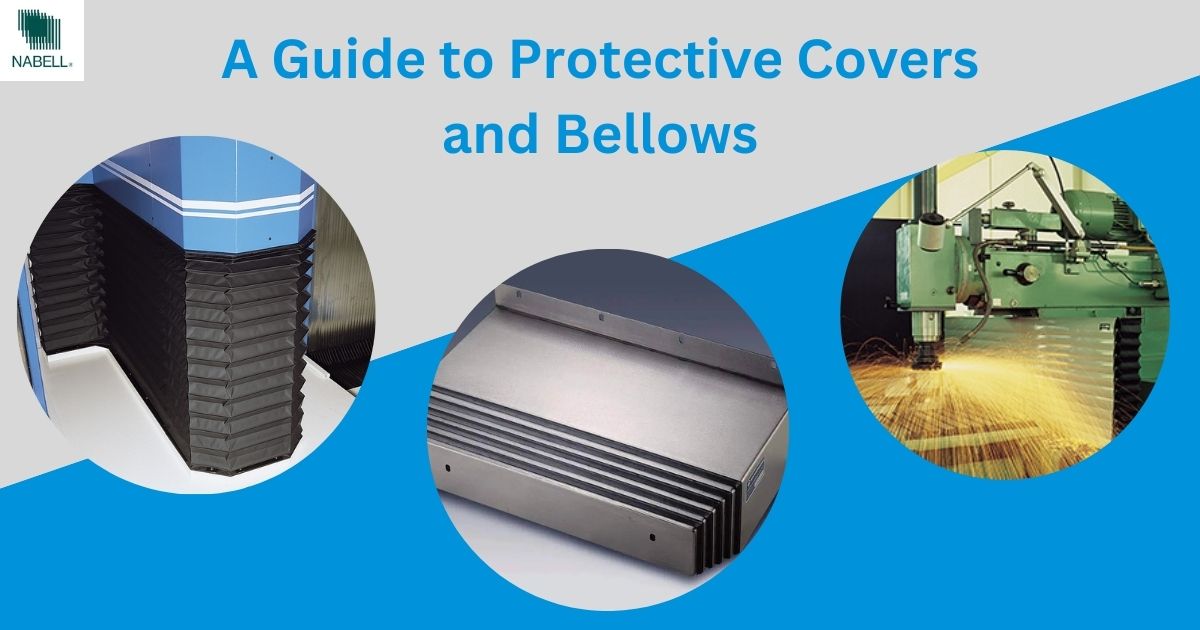Industrial machinery and equipment are the backbone of countless applications, where optimal performance and durability are paramount. However, these critical systems often face threats from dust, debris, moisture, and other environmental contaminants, which can hinder functionality and reduce their lifespan. This is where protective covers and bellows come into play. Acting as a shield, these components provide essential protection to machinery parts, such as rods, screws, and pistons, ensuring seamless operation even in the harshest conditions. This post explores the significance of protective covers and bellows, the various types available, and how they contribute to safeguarding machinery, reducing maintenance needs, and enhancing efficiency across industries. Whether you’re in manufacturing, automotive, or aerospace, understanding these components is key to maintaining your equipment’s reliability and performance.
Overview of Protective Covers and Bellows
Protective covers and bellows work as a barrier to protect sensitive components from contaminants like dirt, dust, moisture, and chemical splashes that could impact the overall performance of machinery. Here’s a brief explanation of the designs of both protective covers and bellows:
- Protective covers: These rigid or flexible shields can wrap around or sit over machine components. They are used in various applications, from covering conveyor belts to protecting electronic components.
- Bellows: These are flexible accordion-like structures that can expand and contract as machinery operates, providing dynamic protection for moving parts while accommodating motion.
Types of Protective Covers and Bellows
The materials and design used for bellows guards and protective covers differ according to their application and the environment in which they are used. Following are the common types of covers and bellows:
- Fabric Bellows: These bellows are lightweight and flexible, which makes them perfect for applications that need quick motion and frequent usage. These bellows are generally designed with materials like polyester, nylon, or coated fabrics that resist abrasion, heat, and chemicals.
- Metal Covers: These protective covers are rigid, durable, and frequently used in heavy-duty industrial settings. These covers are usually made with stainless steel or aluminum that provides resistance to corrosion and withstand harsh conditions.
- Rubber Bellows: These rubber bellows provide the ultimate level of flexibility and durability that works best for applications that require resistance to moisture, oils, and extreme temperatures. These types of bellows are ideal for automotive, marine, and industrial machinery.
- Telescopic Covers: These covers are rigid in structure and their main role is to safeguard moving parts of CNC machines, lathes and other precision equipment. They are engineered to retract or extend as the machinery operates, ensuring compact yet effective protection.
- Roll-Up Covers: Roll-up covers are compact and ideal for applications with limited space. These covers roll out to shield components and retract when not needed, providing an efficient and space-saving solution.
Industries Benefiting from Protective Covers and Bellows
Protective covers and bellows guards are widely used across industries:
- Manufacturing: In manufacturing facilities, machinery is frequently exposed to metal shavings, lubricants, and various contaminants. Implementing protective covers is essential to ensure that precision tools and moving components operate effectively without interference from these elements.
- Automotive: Bellows play an important role in the automotive sector. They protect essential components like shock absorbers, drive shaft and steering systems from any kind of dust, water and road debris to ensure optimal vehicle performance.
- Medical Equipment: Medical devices often require precise and sterile operations. Bellows and covers safeguard sensitive parts from dust and contaminants, maintaining hygiene and functionality.
- Aerospace: In aerospace applications, where reliability and precision are non-negotiable, bellows protect hydraulic systems, actuators, and other critical components from extreme conditions and contaminants.
In conclusion, protective covers and bellows are indispensable when it comes to safeguarding machinery, enhancing performance, and reducing operational costs across industries. By incorporating these protective covers and bellows into machinery, industries can contribute to the longevity and reliability of the equipment. If you are considering these essential components for your machinery and looking for good-quality durable protective bellows, consider reaching out to Nabell USA Corporation. The experts at the company will work closely with you to design and develop protective bellows covers and bellows guards for your applications.

